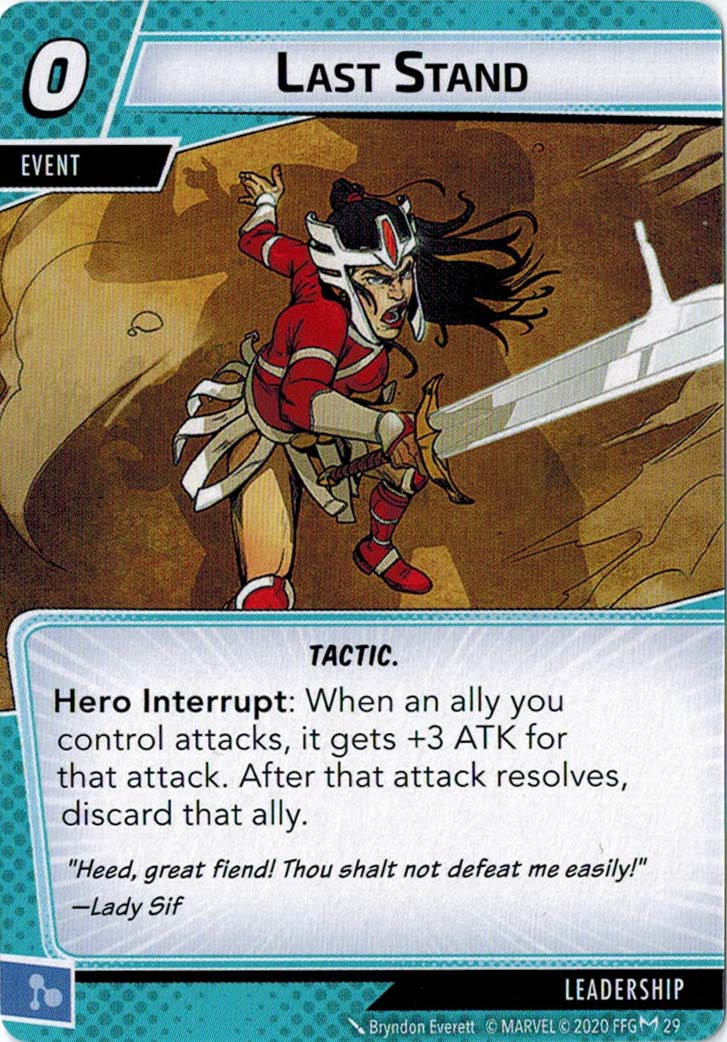Last Stand is a better card that it initially appears. This is because when using Last Stand with an ally's final remaining health associated with consequential damage, the consequential damage triggers prior to the full attack resolution. Comments below here show this has been nuanced. While Hero Interrupts occur before consequential damage, the discarding condition provided by the Hero Interrupt triggers after consequential damage has already been dealt. This is because consequential damage is part of the attack resolution, and the discard is described as occurring after attack resolution. Since the ally has already been defeated by consequential damage, there is nothing to discard. See hallofheroeslcg.com
"If I use Last Stand on an ally that has 1 health and would take 1 consequential damage after that attack, would the ally be discarded by Last Stand or be defeated from the consequential damage? Last Stand states that the discard happens “after that attack resolves”, is taking consequential damage a part of resolving an attack?"
Answer: "Consequential damage is considered part of that ally’s attack, so that ally would be discarded via consequential damage, before Last Stand’s effect would discard it."
Why does this matter though -- ally is gone either way, so what's the value in the distinction? Others hinted it can return Starhawk to your hand even with the buff granted. True. I consider Med Lab the more overall beneficial combination, however. You can use Last Stand, have your ally die from consequential damage and trigger the condition for them to end up in the Med Lab. Them coming from the Med Lab can be superior from Make the Call or Rapid Response, since when played from the Med Lab, they are played "as if [the ally] was in your hand." Since several cards have restrictions on entering play abilities from your hand (think Eros, Ironheart, etc.), this allows you to still trigger that ability on the ally. The downside is they enter exhausted.
